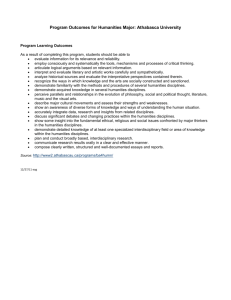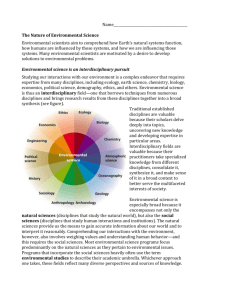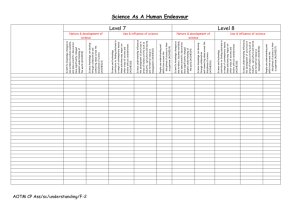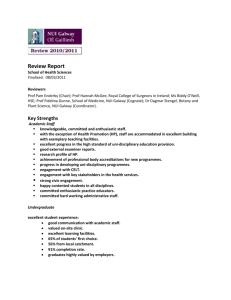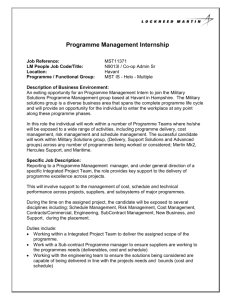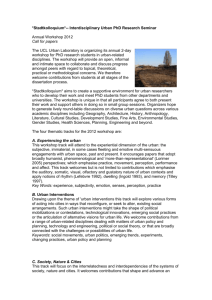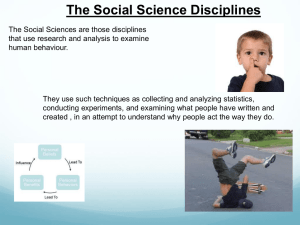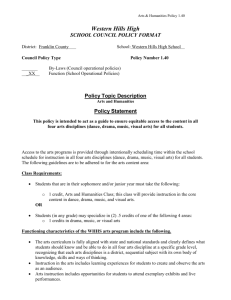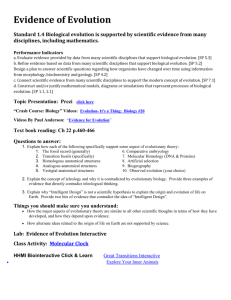Review Report
advertisement
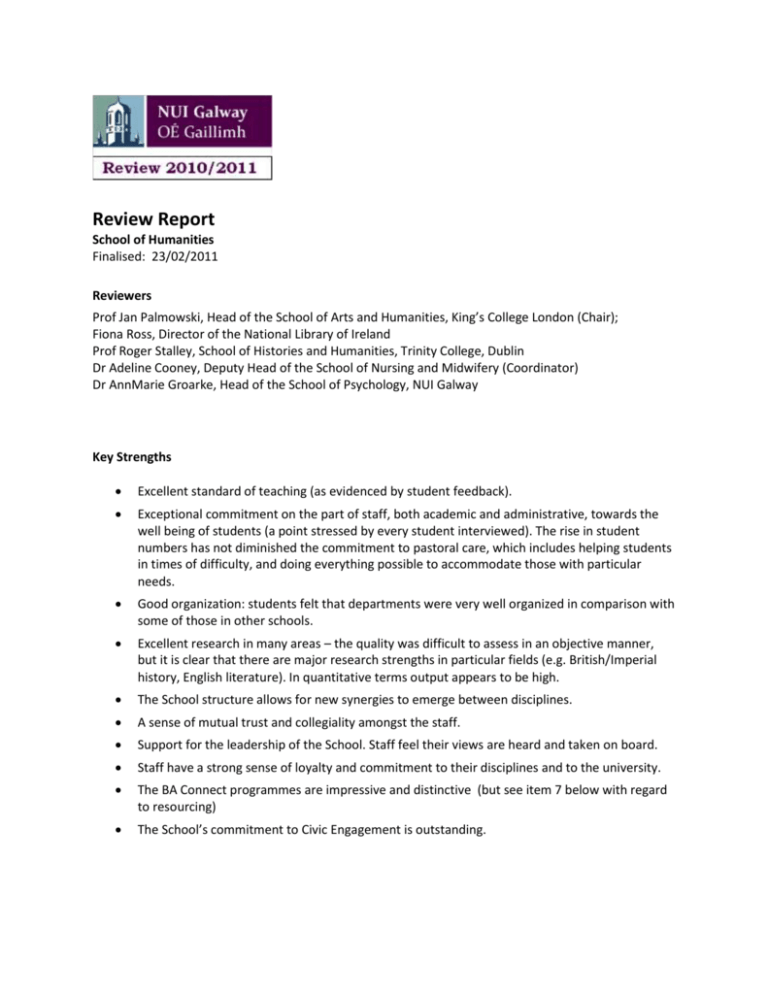
Review Report School of Humanities Finalised: 23/02/2011 Reviewers Prof Jan Palmowski, Head of the School of Arts and Humanities, King’s College London (Chair); Fiona Ross, Director of the National Library of Ireland Prof Roger Stalley, School of Histories and Humanities, Trinity College, Dublin Dr Adeline Cooney, Deputy Head of the School of Nursing and Midwifery (Coordinator) Dr AnnMarie Groarke, Head of the School of Psychology, NUI Galway Key Strengths Excellent standard of teaching (as evidenced by student feedback). Exceptional commitment on the part of staff, both academic and administrative, towards the well being of students (a point stressed by every student interviewed). The rise in student numbers has not diminished the commitment to pastoral care, which includes helping students in times of difficulty, and doing everything possible to accommodate those with particular needs. Good organization: students felt that departments were very well organized in comparison with some of those in other schools. Excellent research in many areas – the quality was difficult to assess in an objective manner, but it is clear that there are major research strengths in particular fields (e.g. British/Imperial history, English literature). In quantitative terms output appears to be high. The School structure allows for new synergies to emerge between disciplines. A sense of mutual trust and collegiality amongst the staff. Support for the leadership of the School. Staff feel their views are heard and taken on board. Staff have a strong sense of loyalty and commitment to their disciplines and to the university. The BA Connect programmes are impressive and distinctive (but see item 7 below with regard to resourcing) The School’s commitment to Civic Engagement is outstanding. Profile of the School 1. The School should develop and articulate its intellectual identity with greater energy and communicate this to internal and external stakeholders. The newsletter is an excellent start, but there should be more emphasis on the distinctive features of the School in a national and international context. 2. The highly impressive activities in civic engagement should be highlighted as a critical part of the identity of the School and acknowledged as one of its strengths. The University should be more enterprising in appropriating these activities as part of its engagement with the city and its wider hinterland. Postgraduate programmes 3. Compared with some other schools, Humanities has the potential to expand its cohort of PhD students, in line with the University strategic plan. To allow for this, the College and the University should seek to control or reduce UG numbers, transferring BA teaching to subject areas within or beyond the School where there is potentially less postgraduate demand. 4. To increase the number of PhD students, staff working in areas attractive to PhD students should be freed from other demands, as appropriate. If the university is to realize its ambitious PhD targets, the introduction of an incentivization scheme (e.g. for recruitment above an agreed target) is essential, with benefits flowing directly to the School. . 5. The taught requirements on the structured PhD should be more flexible. The required number of ECTS credits should be lowered, and the programme tailored to suit the individual needs of students, taking into account their academic profile. 6. The apparently low PhD completion rates should be addressed through effective use of the structured PhD programme and a robust system for monitoring progress. 7. Given the wide range of MA programmes on offer, the School should consider the sharing of modules in a bold imaginative way. There is potential for the development of cross-disciplinary MAs that would be unique to NUI, Galway and would reflect the distinctive strengths of the School. 8. Given pressures on staff workloads, MA options should aim for a quota of 15-20 students. In the current economic climate, MA options at programme and module level with less than 10 students are not viable. 9. To facilitate MA collaboration and coordination, the School should consider the introduction of a School-level postgraduate taught committee with a clearly defined, strategic remit. 10. The School should assess the level of risk inherent in concentrating administration and responsibility for individual MA programmes on a single MA convenor (illness, leave, etc). 11. For MA recruitment, the rolling system of applications should to be applied more effectively, to ensure that qualified applicants are admitted as soon as they apply. Pooling applications while waiting for deadlines weeks or months in advance is a luxury that cannot be afforded. Undergraduate teaching 12. The BA Connect is a distinctive strength of the College, and of the University. Currently it is over reliant on individual academics. It should be supported in a more sustainable way, both at School and College level. 13. The staff should be encouraged to explore the full range of possibilities offered by ‘technologically enhanced learning’. Electronic submission of coursework should be standard across all subjects, not least for easy access to plagiarism software. 14. Under the leadership of the Teaching and Learning Committee, the School should formulate a clear understanding of how courses in the various disciplines are taught in the different years, the nature of progression between the years, what students should have achieved in each year and how student workloads differ. For the BA in Arts, this analysis should then be taken to College level. Disciplines and their relationship with the School 15. Disciplines exist. They are important in defining the School intellectually. At the same time, the School has become the primary administrative unit, and the School should respond to the implications of this. 16. In the light of restructuring, the functions of the head of disciplines should be more precisely defined. They should be acknowledged as effective advocates of their subjects. This does not diminish the role of the Head of School, who needs to take decisions taking into account a number of factors, including the advice of the heads of disciplines in their concern for the academic health of their subjects. 17. To optimize the committee structure of the School, the Executive should become a much stronger body, composed only of the Head of School, the School administrator (as an equal member of the Committee), and the heads of the academic disciplines. It should meet more frequently than at present. 18. The School’s research committee should be folded into the Executive of the School and led by the heads of discipline who are tasked with the intellectual leadership of their subjects. The Moore Institute should be represented (ie in attendance) on all occasions when research strategy is on the Executive’s agenda. 19. As the new School structure beds down, there should be a reduction in the number of meetings and committees. Duplication of discussion at School and disciplinary levels should be avoided and the School should be acknowledged as the key administrative unit. 20. All committees should report to the School Executive, which advises the Head of School. 21. The School’s desire to develop a research strategy arising out of staff workload profiles is an excellent initiative. This exercise should seek to identify linkages or common interests between staff in different disciplines (which might then link in with new thematic/cross-disciplinary MA programmes). Such a strategy, developed ‘bottom up’, would help to define the School’s research strengths, attract outside researchers and research students, and assist staff in making grant applications. 22. One implication of maximizing the opportunities arising out of the School system is the need to create a more ‘centralized’ budgetary system whereby items such as purchasing, collaborative grants, incentivization, and teaching grants, remain at the School level. The Head of School will allocate these funds in consultation with the Executive. Administration 23. In the interests of risk reduction (legal issues, personnel matters etc), the School should clarify and reinforce the reporting lines of the administrative staff. For these posts everyone should be made aware that the Head of School and the School administrator are the official line managers, not the heads of individual disciplines. Academic staff should also be alert to the distinction between academic matters (course content, teaching methods etc) and administrative processes (including submission of coursework, module registration, etc). 24. Also in the interests of risk reduction, the School should work towards the harmonization and streamlining of administrative processes amongst the constituent disciplines (registration, organization, timing of assessments etc.). The current situation is inflexible and administrative staff cannot easily cover vacancies in other disciplines in the event of illness, leave, retirements etc . The School and the University 25. The channels of communication between the School and the University should be significantly improved. This includes (at minimum) an annual meeting between the President and the School, as well as regular meetings between the President and the Head(s) of School. 26. To support the University’s strategic goals, a clearer system of incentives should be put in place to promote (a) the growth of PhD numbers (b) the expansion of international recruitment (c) the development of cross-School/College collaboration in teaching and research and (d) an increase in the number of applications for external research grants. In undertaking additional activities, some tangible gain should flow to the School. For instance, a proportion of research overheads or income generated above a given target could be returned to the School. Similarly, service teaching provided for other Schools/Colleges should be formally acknowledged (e.g. through the transfer of FTEs). Other Recommendations Comments on Review Process We were very impressed with the relatively ‘light-touch’ nature of this process. We welcomed the QA Office’s desire to focus on substantive recommendations that might be helpful. The QA Offices organization of the process was exemplary, and we received excellent information and support. The School’s Self-Assessment Document was very comprehensive. However, given the importance of this School to the University (and its size) we were surprised not to meet the President and hear his plans and his views. The review was also supposed to focus exclusively on the School; but it is impossible to assess it fairly without also referring to how the School relates to the College, and to the University. In future the balance between School and College/University representatives might be changed in favour of the latter.

